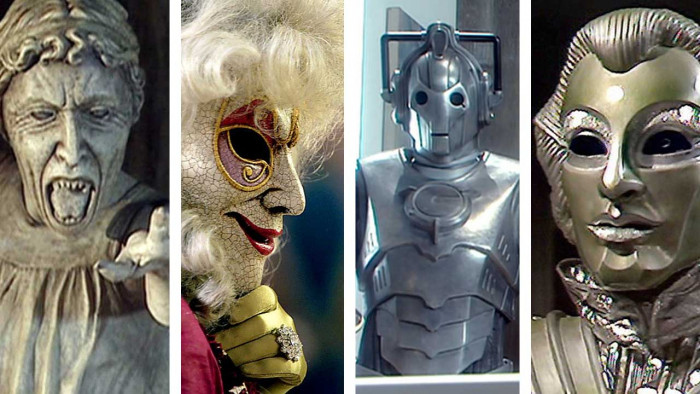Why the rise in men seeking help for eating disorders might actually be a good thing
We spoke to men about the struggle of suffering with something that has for so long been culturally perceived as a 'women's issue', and the added difficulty that brings


“Karen says I've reached my target weight
Kate and Emma and Kristin know it's fake
Problem is diet's not a big enough word
I wanna be so skinny that I rot from view”
Manic Street Preachers’ ‘4st 7lb’, from their 1994 album The Holy Bible, tells the tragic story of a teenage girl slowly losing herself to anorexia nervosa, tracking her weight from 6st to the titular figure, the weight at which death is thought to be ‘medically unavoidable’. The song also tells, in his typically oblique way, the story of its writer, Richey James Edwards (pictured above). Edwards, the Manics’ former guitarist, was one of Britain’s greatest musicians. The operative words in that sentence, for those not paying attention, are ‘former’ and ‘was’. In February 1995, aged just 27, Richey Edwards disappeared after suffering from lifelong depression and anorexia. He was declared legally dead in 2008.
Anorexia nervosa, probably the most well known (though far from the most common) eating disorder, is an emotional condition, where sufferers develop an obsessive relationship with food restriction and weight loss. It currently affects around 80,000 people in the UK. According to the charity Beat, 725,000 people, or just over 1% of the population, suffer from some form of eating disorder. Ranging from bulimia (extreme binging followed by purging / fasting) to binge eating disorder, these conditions are devastating when left untreated.
So why did Edwards, a long term sufferer of anorexia until his disappearance, decide to tell his own story from a young girl’s point of view? Because, through a cultural lens, men like Richey are an anomaly. A cursory Google image search of ‘anorexia’ or ‘bulimia’ reveals a slough of female bodies, article after article have been written about the dangerous effect female supermodels’ ‘heroin chic’ aesthetic have on young women’s body images, and almost every film or TV depiction of obsessional relationships with food focus on a female character – Cassie’s anorexia in Skins, or Blair’s bulimia in GossipGirl, for example. Culturally, if not statistically, eating disorders are pretty much exclusively a women’s issue.
However, according to a BBC report issued last week, the number of men seeking medical attention and intervention for eating disorders has risen by 27% in the last three years, double that of women. Is this a case of more men suffering from eating disorders, or is it that more men are feeling empowered to seek help for what was, previously, an invisible issue? To find out, I spoke to a number of young men who have struggled with eating disorders about their experiences, and how the reported rise in young men seeking help made them feel.
“Looking back, I think there may have been clues I was anorexic early on.” This is Samuel, a 28-year-old writer currently working on his first novel, a teen story that draws on his experience with anorexia nervosa. “For example, I had a few compulsive tendencies as a child – washing my hands, touching things a certain number of times, and so on. Equally, lots of kids go through phases like this and don't develop eating disorders (or other related health problems, like obsessive-compulsive disorder).
“I was a big kid: I hit puberty early, and was perhaps slightly chubby – although an entirely healthy weight. I used to get picked as prop when we played rugby, for example. I remember the odd jokey comment about me being fat – nothing major. The kind of thing boys tend to say to each other, and which doesn't set off alarm bells in the same way when it's said to boys.
“I slipped into anorexia on holiday, weirdly. We were in Italy, and there was a heatwave, and none of us felt like eating much. At home, we were a strictly three-square-meals-a-day family. Breaking that pattern showed me that I could go without a meal, and it would be OK, if that makes sense. It sounds ridiculous, but it was the first time I'd really considered the idea of skipping a meal, or not eating exactly the same as everyone else was eating.
“And then, when I came back, I fell into a pattern of continuing to under-eat. I was a restrictor. I didn't really make myself throw up, or binge and purge, or anything. I just trimmed my three square meals down to the bare bones: a carefully weighed 30g bowl of cereal, a single sandwich, and so on.
“The experience of an eating disorder is horrible for everyone, and I can't speak to what it's like for girls and women, but there were definitely special anxieties around being a man with what is generally seen as a ‘girl's disease’. I think we've come a long way in the past few years in awareness. That's fantastic.
“I really struggled with the way any conversation about body image defaults to a discussion of (middle class, white) women's diet pressures, and if you're going through something that doesn't fit that mould, it's exhausting and alienating. I wanted to scream, ‘but what about me then?!’”
Samuel’s feeling of isolation and invisibility aren’t unique, but sadly all too common.
Alfie, 26, developed an eating disorder after years of grooming and abuse by an older man. He began suffering anorexia after having a breakdown at 19, when he’d finally confided in others his story of abuse.
“The guy used to tell me to stay thin because he didn't like big boys. And when I got out of that trap is when my eating disorder really started.
“I felt like I needed something to block out the torment of the past six years and that's when I decided not to eat as it took my mind off everything. I set myself goals of weights I wanted to be. I was upsetting my family and friends and no matter what doctors told me I wouldn't listen. It finally came to a stage where my work got involved and told me if I don't sort myself out I would get the sack and my dad threatened me he would send me away to rehab.
“I didn't seek help because I didn't think I had an eating disorder, I thought I was OK. The narrative around eating disorders is more focused on girls and guys, like me, can feel ashamed about it and that people will judge them.
“In the end my friends took me away for a week to Norfolk and spoke with me and kinda nursed me to eat. And I'm so thankful because they made me eat and to feel good about eating. I don't have an eating problem now. I eat healthy.
“I think a lot of men – and I speak for myself here too – are quite proud and want to make people think they've got it all together. It's the worry of taking that first brick down and admitting defeat. I think it's a great thing that more men are seeking help now. It makes me wish I sought help earlier than I did but I also know it's got to come from you. I think it needs to be spoken about more. By everyone.
I asked each of my interviewees for some advice for young men who might be struggling with eating disorders, based on their experiences and what helped them.
“Just seek help. Friends can only do so much. Ask a counsellor, go see the nurse, call a hotline, whatever is available and easy,” said Jon, 30, from Finland, who developed anorexia when they were a child, alongside a diagnosis of severe depression.
“Self help can just put you in a tailspin when you don't have the wherewithal to follow through on the advice from books, vlogs and what have you. You need personal help, and those books and talking heads are not your personal help.”
“My first bit of advice would always be to talk to someone,” says Samuel. “If you're not comfortable discussing with a doctor, Beat has helplines that are open every day.
“Lots of the support systems are set up assuming you're a woman. It feels intimidating accessing them, because you're worried that people will laugh at you, or whatever. You're terrified of how people will react to a boy/man in this situation. But once you're 'in', people are – in my experience – universally supportive and understanding.
“However, awareness itself unfortunately doesn't fix the problem. Eating disorders remain the one of the most deadly mental health issues. And at a time when the NHS is chronically underfunded, and referrals for mental health treatment often take months, that's scary. People die waiting for treatment, and that's a fixable problem if we want it to be.”
Tom Quinn, Director of External Affairs at Beat, stressed that, though the report doesn’t show the cause of the increase in men seeking treatment, it is, nevertheless, a positive trend.
“There remains a lack of understanding about eating disorders, which can make it even harder for sufferers to seek help. While eating disorders are often stereotyped as an illness that affects only women and girls, up to a quarter of sufferers are thought to be male, and there may be many more male sufferers who do not feel able to seek help.
“These findings might indicate a rise in the number of men and boys suffering, but they also might indicate increasing awareness of eating disorders in men among both healthcare professionals and wider society, and an increasing number of male sufferers who feel able to come forward about their illness.
“Eating disorders are serious mental illnesses and early treatment gives a far greater chance of recovery. If we are to see everyone access the treatment they need as quickly as possible, it’s vital that everyone is aware that eating disorders can affect anyone, and gender is not a factor.”
If you’ve been affected by any of the issues brought up in this article, please contact your local eating disorder support service, speak to your doctor, or find out more information from Beat’s website.
Latest
Related Reviews and Shortlists


The best Doctor Who episodes, ranked








